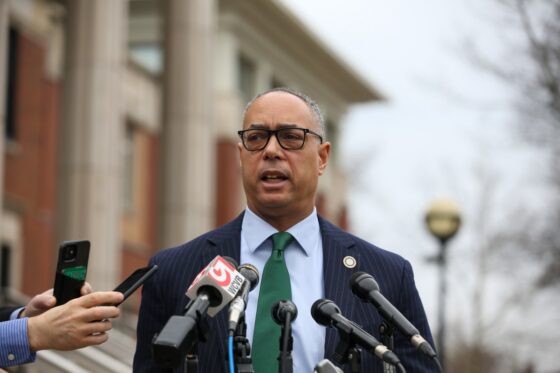Cocaine use is on the rise in Australia with the latest national statistics finding 11% of Australians have used cocaine in their lifetime and 4% have used in the past 12 months.
Serious criminal penalties apply to the importation, sale and possession of cocaine in NSW. Here’s your ultimate guide to relevant laws.
What Is cocaine?
Cocaine is a tropane alkaloid derived and refined from the Coca plant.
The drug is a stimulant, meaning it speeds up messages travelling between the brain and body.
The effects of cocaine include increased energy, feelings of happiness and confidence and experiencing euphoria.
Cocaine comes in many forms including:
- Cocaine hydrochloride: a fine white powder with a bitter, numbing taste. Cocaine hydrochloride is often mixed, or ‘cut’, with other substances which can pose a risk to users.
- Freebase: a white powder that is purer than cocaine hydrochloride.
- Crack: crystals ranging from white or cream to transparent with a pink or yellow hue.
In Australia, most cocaine sold comes in a powdered form and is administered through snorting (“doing lines”).
The offence of importing or exporting cocaine
The importation of cocaine (a ‘border controlled drug’) is an offence under sections 307.1 (commercial quantity), 307.2 (marketable quantity) and 307.3 (any quantity) of the Criminal Code Act 1995.
To be found guilty of an importation offence, the prosecution must prove beyond a reasonable doubt that:
- A person imported cocaine and
- The person knew they were importing cocaine, or was reckless as to whether or not they were importing cocaine.
The term ‘import’ includes bringing the substance into Australia, as well as dealing with the drug in connection with its importation. The term ‘reckless’ means a person foresaw there was a substantial risk the substance was a border controlled drug (whether or not it was specifically cocaine) but went ahead with their actions regardless.
If the prosecution wishes to charge a person with importing a marketable or commercial quantity of cocaine, they will need to prove the existence of that quantity.
A marketable quantity of cocaine is 2 grams. A commercial quantity is 2 kilograms.
The maximum penalties for importation offences are:
- 10 years imprisonment for importing less than a marketable quantity of cocaine under section 307.3 of the Code
- 25 years imprisonment for importing more than a marketable quantity of cocaine but less than a commercial quantity under section 307.2 of the Code
- Life imprisonment for importing a commercial quantity of cocaine or more under section 307.1 of the Code.
The offence of manufacturing cocaine
To ‘manufacture’ cocaine means to to make up, prepare, produce, process (including by extracting or refining), package or label the psychoactive substance.
Several offences relating to the manufacture and production of prohibited drugs (including cocaine) are found under the Drug Misuse and Trafficking Act 1985 NSW. These include:
- Manufacturing or producing or knowingly taking part in the manufacture or production of a prohibited drug under section 24(1) of the Act.
- Taking part in the activities above whilst exposing a child to the manufacturing or production process, or to substances being stored for use in the manufacturing or production process under section 24(1A) of the Act.
- Manufacturing or producing or knowingly taking part in the manufacture or production of a prohibited drug which is more than the commercial quantity under section 24(2) of the Act.
- Taking part in the activities above whilst exposing a child to the manufacturing or production process, or to substances being stored for use in the manufacturing or production process under section 24(2A) of the Act.
A commercial quantity of cocaine under the Drug Misuse and Trafficking Act 1985 is 250 grams, and a ‘large commercial quantity’ is 1 kilogram.
The maximum penalties for manufacture and production offences depend on the quantity of cocaine manufactured of produced .
For an offence under section 24(1) of the Act, the maximum penalty is 10 years imprisonment and/or a $220,000 fine.
For an offence under section 24(2) of the Act, the maximum penalty is:
- 15 years imprisonment and/or a $385,000 fine if the cocaine is more than a commercial quantity but less than a large commercial quantity.
- 20 years imprisonment and/or a $550,000 fine if the cocaine is more than a large commercial quantity.
For an offence under section 24(1) of the Act, the maximum penalty is 12 years imprisonment and/or a $264,000 fine.
For the offence under section 24(2A) of the Act, the maximum penalty is:
- 18 years imprisonment and/or a $462,000 fine if the cocaine is more than a commercial quantity but less than a large commercial quantity.
- 25 years imprisonment and/or a $660,000 fine if the cocaine is more than a large commercial quantity.
Lesser penalties apply if the offence is capable of being tried summarily.
The offence of supplying cocaine
Section 25(1) of the Drug Misuse and Trafficking Act 1985 outlines the offence of supply of a prohibited drug, which includes cocaine.
Drug supply can include supplying drugs to friends without payment, sending drugs in the post, and being part of a group of people buying drugs with combined funds, selling them and splitting the proceeds. Even if a drug that you supply doesn’t contain an illicit substance, if you have represented it as an illegal drug you can still be charged and convicted of drug supply.
To prove the offence of supply in relation to cocaine, the prosecution must prove beyond reasonable doubt that a person supplied cocaine to another and knew, or believed at the time, the substance supplied was cocaine.
The maximum penalties which apply to supply offences depend on the quantity of cocaine supplied. For cocaine the following distinctions are made:
- A small quantity is 1 gram.
- An indictable quantity is 5 grams.
- A commercial quantity is 250 grams.
- A large commercial quantity is 1 kilogram.
The maximum penalties which apply for an the offence of supply for cocaine are:
- For less than a small quantity, a $5,500 fine and/or 2 years imprisonment if the matter is heard in the Local Court or a $220,000 fine and/or 15 years imprisonment if the matter is heard in the District Court.
- For more than a small quantity, but less than an indictable quantity, a $11,000 fine and/or 2 years imprisonment if the matter is heard in the Local Court or a $220,000 fine and/or 15 years imprisonment if the matter is heard in the District Court.
- For more than an indictable quantity, but less than a commercial quantity, a $11,000 fine and/or 2 years imprisonment if the matter is heard in the Local Court or a $220,000 fine and/or 15 years imprisonment if the matter is heard in the District Court.
- For more than a commercial quantity, but less than a large commercial quantity, a $385,000 fine and/or 20 years imprisonment.
- For more than a large commercial quantity a $550,000 fine and/or life imprisonment.
It should be noted that under section 29 of the Act, a charge of drug supply can be bought even if there is no evidence of a person actually supplying the drug.
This is known as ‘deemed supply’ and applies if a person is in possession of at least a ‘traffickable’ quantity of a drug. The traffickable quantity for cocaine is 3 grams.
To rebut a charge of deemed supply, the accused must establish (on the balance of probabilities) that the drugs were possessed for reasons other than supply.
The offence of possessing cocaine
Possessing a prohibited drug is an offence under section 10 of the Drug Misuse and Trafficking Act 1985 (NSW).
For cocaine, this offence will apply if a person is found in possession of any quantity of cocaine.
The term ‘possession’ has been defined by the courts as in your ‘exclusive possession, custody or control’.
‘Exclusive possession’ requires the prosecution to exclude any reasonable possibility the drugs were not possessed by you.
The maximum penalty for drug possession is 2 years imprisonment and/or a fine of $2,200.
The offence of driving with cocaine in the system
Drug driving is an offence under section 111 of the Road Transport Act 2013 which criminalises a person who has any detectable amount of cocaine in their saliva, blood or urine whilst:
- Driving a motor vehicle; or
- Occupying the driving seat of a motor vehicle and attempting to put the motor vehicle in motion; or
- Supervising a learner driver.
The maximum penalty for this offence is:
- For a first offence, an on-the-spot driver licence suspension for 3 months and a penalty notice which is $602 at the time of writing, or an ‘automatic’ 6 month driver licence disqualification which can be reduced to 3 months and a fine of up to $2,200 if the matter is dealt with by a court, or
- For a subsequent offence, a $3,300 fine and an automatic licence disqualification for 12 months, which the court cn reduce down to as low as 3 months or increase as it sees fit.
It is important to be aware that there will be no driver licence disqualification, no criminal conviction and no fine if the magistrate exercises his or her discretion to make a ‘non-conviction order‘, such as a section 10(1)(a) dismissal or a conditional release order without conviction.
The detection window for tests for cocaine in a persons’s system is:
- Up to 48 hours after the consumption of cocaine for saliva tests.
- Up to 48 hours after the consumption of cocaine for blood tests.
- Up to 3 days after the consumption of cocaine for urine tests.
Detection windows may be created if a person uses multiple drugs (whether illicit or medicinal) or have medical issues which impact drug metabolism.
Going to court for a cocaine-related offence?
If you are going to court for an offence relating to cocaine, call Sydney Criminal Lawyers 24/7 on (02) 9261 8881 to arrange a free first conference with an experienced drug defence lawyer who will advise you of your options and the best way forward, and fight for the optimal outcome.
https://www.sydneycriminallawyers.com.au/blog/your-guide-to-new-south-wales-cocaine-laws/

 Cannabis News1 year ago
Cannabis News1 year ago
 One-Hit Wonders1 year ago
One-Hit Wonders1 year ago
 drug testing5 months ago
drug testing5 months ago
 Cannabis 1011 year ago
Cannabis 1011 year ago
 Marijuana Business Daily1 year ago
Marijuana Business Daily1 year ago
 Education1 year ago
Education1 year ago
 Education1 year ago
Education1 year ago
 Cannabis1 year ago
Cannabis1 year ago



















